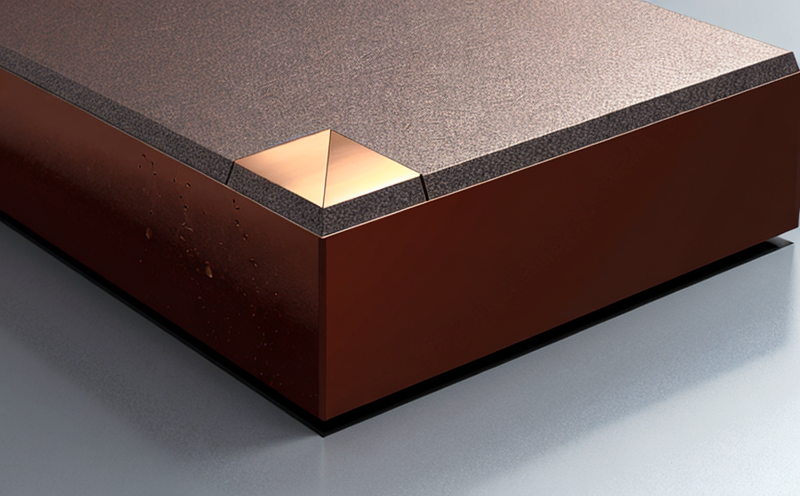Notch sensitivity in corrosion-resistant materials
The Critical Importance of Notch Sensitivity in Corrosion-Resistant Materials A Laboratory Service Provided by Eurolab
As industries continue to push the boundaries of innovation and efficiency, the demand for corrosion-resistant materials has skyrocketed. From aerospace and automotive to construction and energy, these materials play a vital role in ensuring the longevity and performance of critical infrastructure and equipment. However, one critical factor often overlooked is notch sensitivity a phenomenon that can have devastating consequences on material integrity.
In this article, well delve into the world of notch sensitivity in corrosion-resistant materials and explore its significance for businesses across various sectors. Well also examine the benefits of incorporating Notch sensitivity testing into your material evaluation process, courtesy of Eurolabs state-of-the-art laboratory services.
What is Notch Sensitivity?
Notch sensitivity refers to the increased susceptibility of a material to stress corrosion cracking (SCC) or fatigue failure when a notch or defect is introduced. This can occur due to various factors, including material composition, processing techniques, and environmental conditions. When a material is subjected to cyclic loading or corrosive environments, even minor notches can amplify stress concentrations, leading to catastrophic failures.
Notch sensitivity is particularly concerning in corrosion-resistant materials, which are designed to withstand harsh environments while maintaining their structural integrity. However, the presence of notches or defects can compromise these materials performance and lifespan, ultimately impacting business operations and bottom lines.
Why Notch Sensitivity Matters for Businesses
In todays fast-paced industrial landscape, businesses face intense pressure to optimize material selection, reduce costs, and ensure operational reliability. Incorporating notch sensitivity testing into your material evaluation process can help you
Mitigate risk By identifying potential material weaknesses, you can take proactive measures to minimize the likelihood of catastrophic failures.
Optimize material selection Notch sensitivity testing enables you to evaluate materials more accurately, ensuring that they meet specific performance requirements and environmental conditions.
Reduce costs Identifying and addressing notch sensitivity issues upfront can save companies millions in repair or replacement costs, downtime, and potential liabilities.
Key Benefits of Notch Sensitivity Testing
Eurolabs laboratory services provide comprehensive notch sensitivity testing, offering a range of benefits to businesses. Some key advantages include
Early detection of material flaws Our expert technicians use advanced techniques to identify notches and defects before they become critical issues.
Customized testing protocols We work with clients to develop tailored testing programs that meet specific requirements and environmental conditions.
Accurate results and reporting Eurolabs state-of-the-art facilities ensure precise and reliable test data, accompanied by detailed reports for informed decision-making.
How Notch Sensitivity Affects Corrosion-Resistant Materials
Corrosion-resistant materials are engineered to withstand corrosive environments and harsh conditions. However, notch sensitivity can still pose significant challenges
Increased susceptibility to SCC Corrosion-resistant materials may exhibit higher notch sensitivity than conventional materials, making them more prone to stress corrosion cracking.
Fatigue failure Notches or defects in these materials can amplify cyclic loading effects, leading to premature fatigue failure and reduced lifespan.
Frequently Asked Questions
Q What is the significance of notch sensitivity testing for corrosion-resistant materials?
A Notch sensitivity testing helps identify potential material weaknesses, ensuring that corrosion-resistant materials meet specific performance requirements and environmental conditions.
Q How does Eurolabs laboratory service differ from in-house testing?
A Our expert technicians utilize advanced techniques and state-of-the-art facilities to provide accurate and reliable test data, while our customized testing protocols ensure tailored results for each client.
Q What types of materials benefit most from notch sensitivity testing?
A Corrosion-resistant materials, including those used in aerospace, automotive, construction, and energy applications, are ideal candidates for notch sensitivity testing.
Conclusion
Notch sensitivity is a critical factor in material selection and evaluation, particularly for corrosion-resistant materials. Eurolabs comprehensive laboratory services provide businesses with the expertise and resources needed to identify and mitigate potential material weaknesses. By incorporating notch sensitivity testing into your material evaluation process, you can ensure operational reliability, reduce costs, and optimize material performance ultimately driving business success.
Dont let notch sensitivity compromise your material integrity. Partner with Eurolab today to unlock the full potential of your corrosion-resistant materials.
Related Services
Corrosion Testing
Fatigue Testing
Materials Evaluation
Failure Analysis
About Eurolab
Eurolab is a leading provider of laboratory services, specializing in notch sensitivity testing and evaluation for corrosion-resistant materials. Our expert technicians and state-of-the-art facilities ensure precise and reliable test data, helping businesses optimize material selection and reduce operational risks.
By choosing Eurolabs laboratory services, you can trust that your materials are thoroughly evaluated to meet the most stringent performance requirements and environmental conditions.




